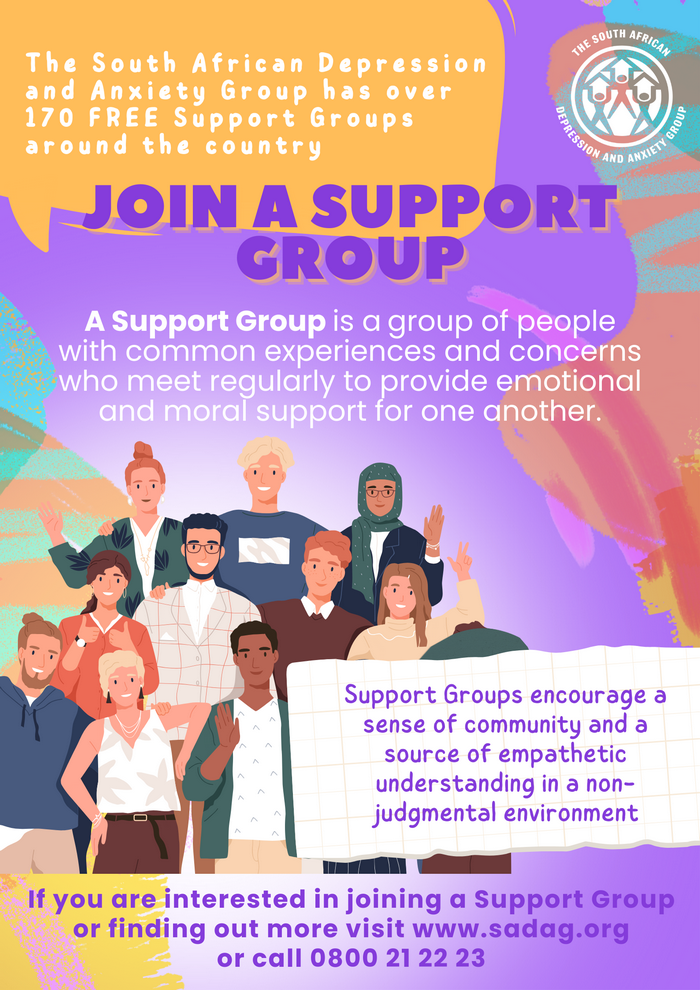Join a Support Group

It’s important to remember that a Support Group is never the first line of intervention when treating or managing a Mental Illness.
In the majority of cases Support Groups are run by patients and ex-patients, they are not Mental Health practitioners and are not able to provide medical advice. A Support Group is not the same as Group Therapy.
If you have consulted with a Mental Health practitioner, have received a diagnosis and are managing your Mental Illness a Support Group can be an incredible support in maintaining your Mental Health. We recommend that you have been managing your Mental Health for a minimum of 6 months before joining a Support Group. While Support Groups offer support from members, they also require that you are able to provide emotional support to others in the Group. If you are still feeling vulnerable and like your own cup is empty, feeling that you need to be there for others can be overwhelming. As a general rule of thumb, one should first see a Mental Health Practitioner and have received a diagnosis prior to joining a Support Group.
This being said, not everyone needs a diagnosis to attend a Support Group, it depends on the type of Group you are looking to join. For example, if you wanted to join a Group for Family Members and Loved Ones of Those Living with a Mental Illness, you wouldn’t need a diagnosis. Similarly, if you wanted to join a Support Group for Grief and Bereavement, you also wouldn’t need a diagnosed Mental Illness.
If you are currently in therapy, we advise speaking to your therapist or counsellor about wanting to join a Support Group prior to doing so. While Support Groups create a safe space of mutual sharing, support and understanding, for those needing professional assistance, Support Groups can become a triggering environment, and can potentially have the opposite effect if the member joins the group prior to managing their mental illness.
Due to the vulnerability and susceptibility of the youth, as well as legal requirements, we advise that only people eighteen and older attend and run Support Groups. Responsible practice, and an emphasis on doing good, not harm, means that we recommend that the youth seek other mental health resources where there are a dedicated team that can ensure the safety and well-being of the individual and group, if you are looking for support for your teen please contact one of our SADAG counsellors who will be able to assist you in finding different referrals.
If you are unsure whether a Support Group is for you, please call one of our toll-free lines and a counsellor will assist.
What would you say to someone who was interested in joining a Support Group?


























